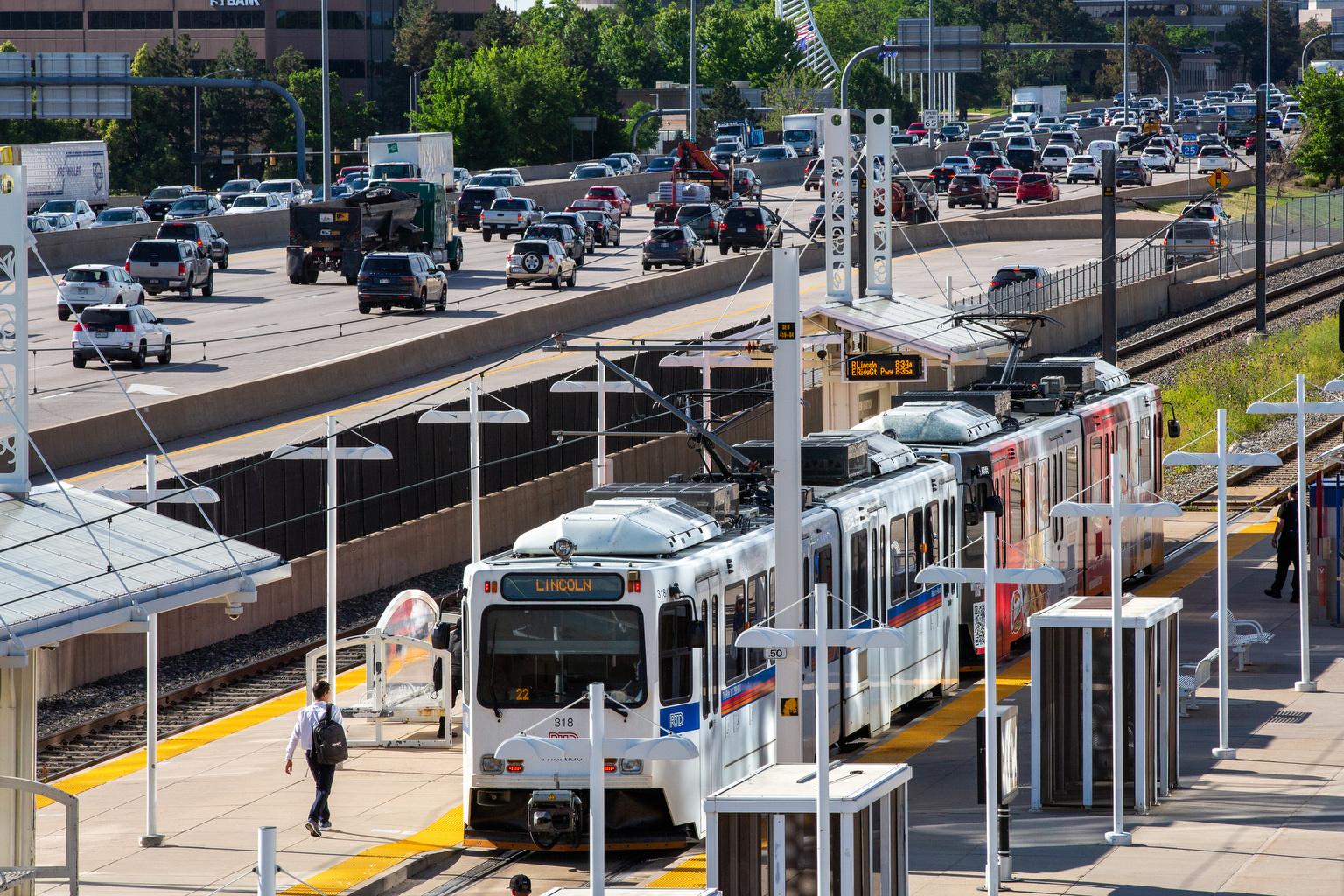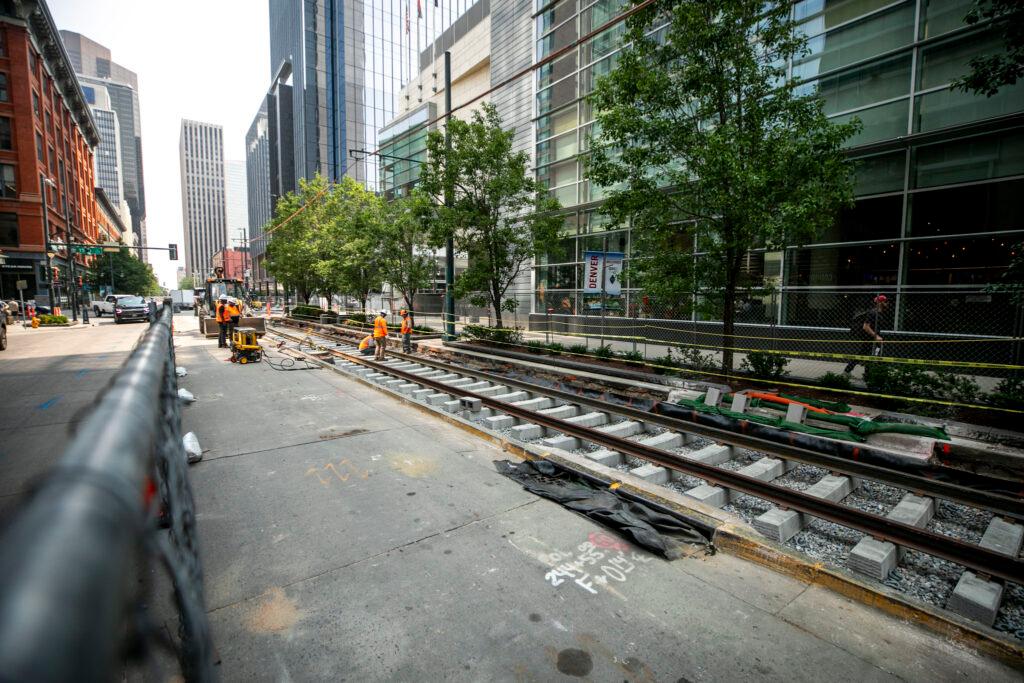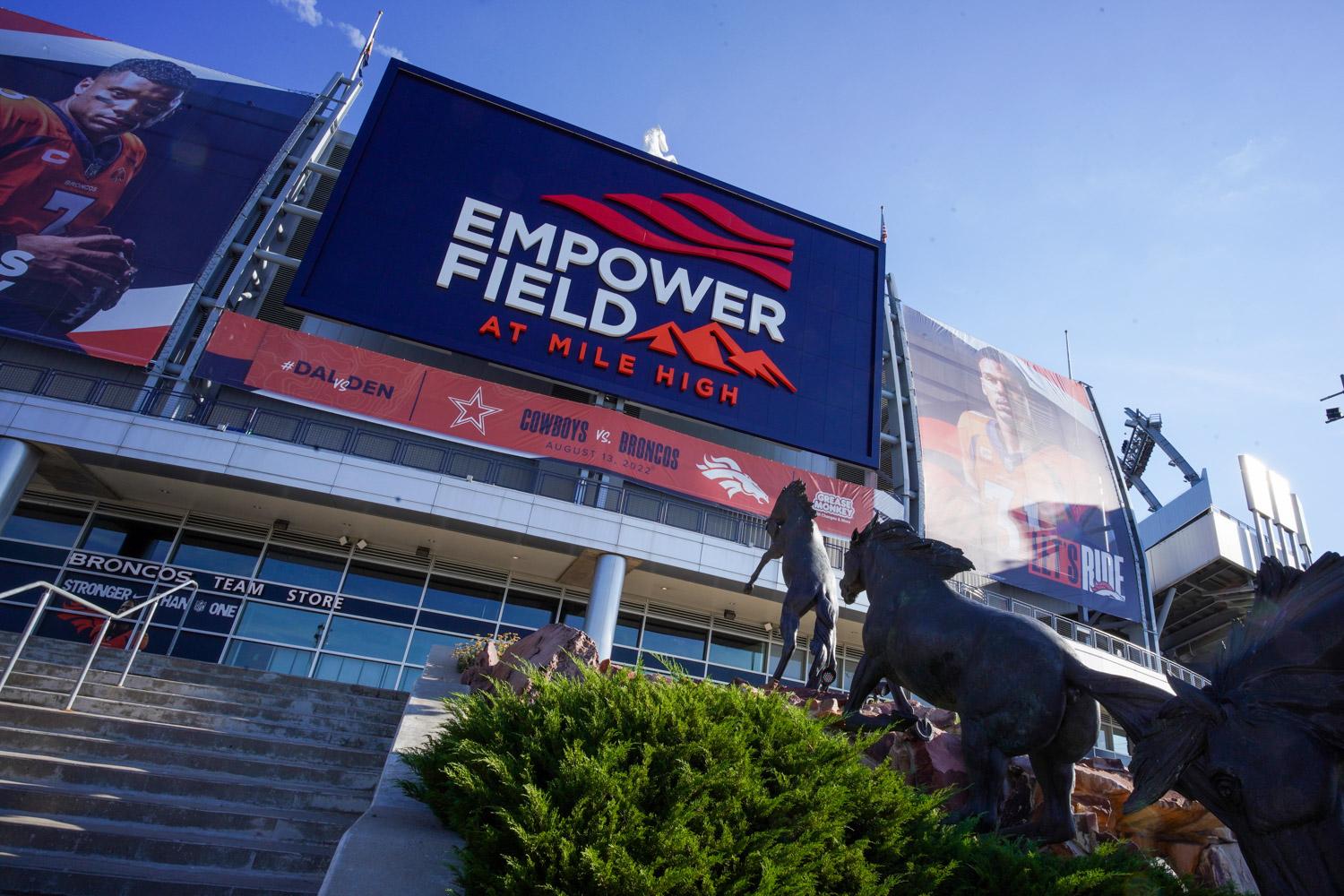
Legislators who failed to pass legislation last session that would have reformed the Regional Transportation District say they will try again next year.
And this time, they say they will uncouple the controversial topic of making changes to RTD’s elected board from other reforms they hope will help the agency that appears to be hemorrhaging riders as it tries to deal with maintenance issues, staffing shortages and other disruptive problems.
“The main bill, in my opinion, will focus on transparency, accountability and how to solve the big problem of increasing ridership,” state Rep. Meg Froelich, D-Cherry Hills Village, who sponsored the last doomed RTD reform bill, told CPR News in an interview.
On Tuesday, the Transportation Legislation Review Committee heard hours of testimony about RTD from advocates, riders with disabilities, safety regulators and a think-tank report author.
RTD executives were invited to attend but did not, citing scheduling conflicts in a letter to the committee. They will attend another meeting in September, the letter said.
In a statement, RTD spokeswoman Tina Jaquez said the agency appreciates legislators’ ongoing efforts to explore issues and develop solutions.
“The Board of Directors, the General Manager and CEO, as well as her staff remain committed to pursuing good policy in future sessions, in partnership with State policymakers, that will support sustainable transit funding and increase equitable access for all customers,” Jaquez wrote in an email. “The agency is grateful to have so many voices and partners in the region helping to bolster its efforts, communicate challenges, and highlight opportunities.”
Many of those partners had plenty to say about RTD.
One fact that caught legislator’s attention was an apparent sharp ridership drop in recent months at RTD, even as its peers across the country have seen demand stay steady.
The Utah Transit Authority, for example, has seen ridership almost completely recover from the pandemic.
“They’ve done that because they’ve brought back service to near 2019 levels,” Matt Frommer, an advocate with the sustainability nonprofit SWEEP, told the committee.
Frommer saluted legislators for boosting state funding of local transit last session and argued more is needed to expand service and help address climate and poor air quality.
But maintenance issues, both planned and unplanned, and an ongoing struggle to hire train operators and other frontline workers have forced RTD to cut light rail service and have made what remains particularly unreliable this summer.
Frommer cited weekly ridership estimates for RTD and peer agencies from the American Public Transportation Association and the Transit App. RTD’s own detailed ridership data for recent months has not yet been published, but it will almost certainly show significant drops on light rail.
It’s also not clear when the light rail system will fully recover. By the fall, RTD had hoped to restore 15-minute peak-period frequencies on its H and E light rail lines that are now running just once an hour.
But now, RTD is proposing just 30-minute frequencies on those lines, saying that “efforts to address ongoing rail maintenance efforts with existing workforce availability are better served with a lower frequency of service.”

June Churchill, with the advocacy group Greater Denver Transit, told legislators such problems were responsible for the “destruction” of light rail ridership, even as service appears to be remaining steady on RTD’s commuter trains and buses.
“As someone who uses the bus, I can rely on the bus to show up on time,” she said. “I can't rely on the light rail to always show up on time.”
Advocates and legislators also keyed in on RTD’s strategic plan to not restore train and bus service to 2019 levels. Before this summer’s light rail disruptions, RTD was offering about 70 percent of its pre-pandemic service and has a long-term goal of 85 percent.
Transit agencies in some other U.S. cities, however, restored much more service years ago using federal pandemic relief dollars to pay for it. Some of those have also since faced a “fiscal cliff,” which has been partially solved in cities like Washington, D.C., by local governments contributing more funding.
RTD, instead, stretched out its federal COVID grants and stockpiled hundreds of millions of dollars in cash saved from running fewer buses and trains. That helped it pay down some of its heavy debt load and stabilize its near- and medium-term finances.
The agency has also boosted its security presence on trains, buses and in stations. Advocates and legislators credited them for that but also said they want RTD to focus on service expansion and reliability.
"It's obvious that there are problems,” said outgoing state Sen. Kevin Priola, D-Brighton, who described himself as a long-time defender of RTD. “When you're performing at the bottom of your peers in the Western United States, that tells me that there are reforms that need to be, at a minimum, looked at and changes that need to be made."
Advocates and legislators have ideas for next year’s bill, too.
State Sen. Faith Winter, D-Broomfield, said she wants to work with RTD through the summer and fall and hopes for a more “collaborative” approach after last session’s reform effort broke down.
Winter also wants lawmakers to address a recent report RTD commissioned that found its “organizational structure, staffing approach, and leadership dynamics” were not supporting its own ability to function well and that employees are unclear about its future direction.
That report was grave enough that three prominent transit advocacy groups called it a “wake-up call for the agency” in an open letter to RTD leaders last week.
“I think part of what RTD needs is a North Star,” Winter said in an interview.
Asked what that North Star should be, Winter cited growing ridership while also addressing tensions between transit-oriented cities like Denver with more sprawling suburbs where residents and local leaders may demand service but may not use it in great numbers.
Greater Denver Transit argued that legislators should not micromanage RTD, but instead pass policy reforms that help it deliver safe and reliable transit service.
One specific idea, among many from the group, is to shift light rail accident investigations out of RTD’s hands and into the Colorado Public Utilities Commission’s. Accident reports, which are now confidential under state law, should be made public, the advocacy group argued.
RTD has cited that law when declining requests from news media and even a local police department for light rail crash reports. But now, legislators and the utility regulator appear to be interested in changing it.
“Could you envision a more robust and transparent conversation about these incidents between the PUC and RTD?” Froelich asked Rebecca White, the director of the utilities commission, at the committee meeting.
“That’s certainly something we’d be willing to talk about,” White replied.
Other ideas floated include a state tax exemption for frontline transit workers, to help them afford to live closer to work, and increased criminal penalties for transit worker assaults.
“We have many bad actors in our community that attack our drivers, attack our bus and train passengers and bring dangerous drugs like fentanyl on board,” said Jaime Lewis, transit advisor for the Colorado Cross Disability Coalition and a short-term RTD board member.
Lewis also said the legislature should support RTD’s ballot measure this fall that will ask voters to let it permanently keep revenue it would otherwise have to refund to taxpayers under the Taxpayer’s Bill of Rights.
If that fails, Lewis said, it could cost RTD tens of millions of dollars a year and hurt its ability to restore service.
- RTD light rail slow zones have expanded, continuing service disruptions and rider frustrations
- RTD CEO says frustrated light rail riders should get used to disruptions
- State safety regulator says RTD ‘failed’ to head off preventable light rail disruptions
- Lawmakers approved more funding for RTD, but couldn’t agree on how to reform it









